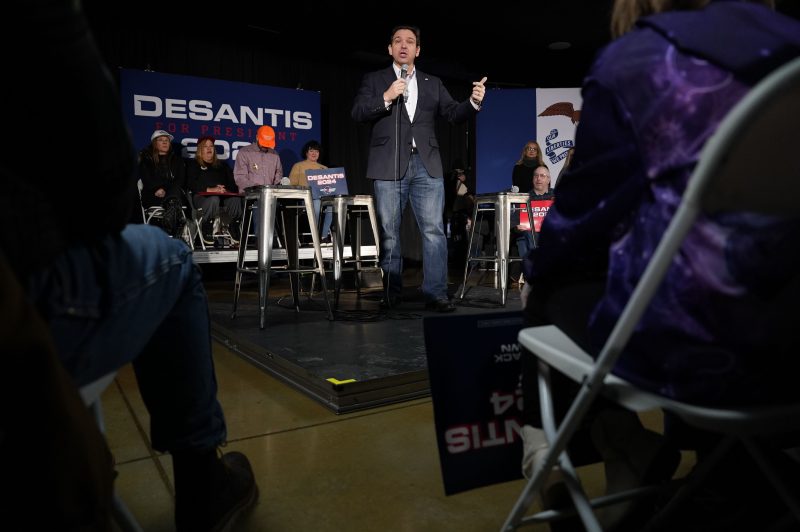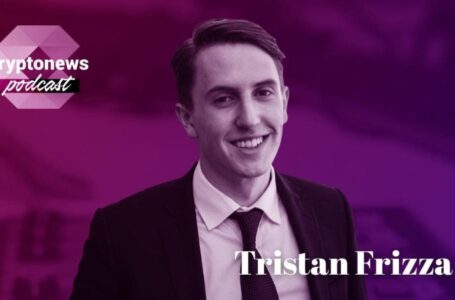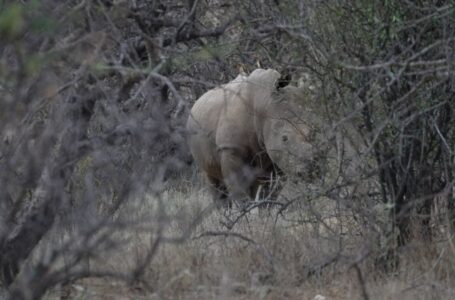Iowa reveals the grim indignities of running for second place to Trump


DES MOINES — Even Iowa’s winter landscape this week seemed to conspire to showcase the grimness of the 2024 Republican primary campaign. Abandoned cars dotted the frozen tundra every few miles like signposts, as if to say: This race is inhospitable to everyone but former president Donald Trump.
The winter storm, which the National Weather Service described as “life-threatening,” blew in with storm squall warnings, subzero temperatures and a gale of unfortunate metaphors for the candidates fighting for a distant second place.
The once-or-twice-in-a-decade winter blizzard that descended on the state forced the main trio of non-Trump candidates — Florida Gov. Ron DeSantis, former South Carolina governor Nikki Haley, and tech entrepreneur Vivek Ramaswamy — to cancel or reschedule desperately needed events in the run-up to Monday’s caucuses.
Haley’s Thursday event in Ankeny, Iowa, for instance, was held at a venue inauspiciously named “Toast.” And on Tuesday, after mocking Haley for canceling her events because of the weather, Ramaswamy’s more than five hour drive back to Des Moines from northwest Iowa was derailed when his campaign SUV ended up driven into a ditch.
Later Tuesday, having canceled events because of the snow, Team Ramaswamy improvised their planned gathering in Pella, Iowa, passing around an iPad featuring a live-streamed Ramaswamy, whose disembodied head addressed the assembled Iowans and answered questions.
Trump’s eldest son, Donald Trump Jr., meanwhile, appeared on his dad’s behalf Thursday in Urbandale, Iowa, at a gathering of the Bull Moose Club — a name that embodies the former president’s own strategy, which seems to be to just barreling through the competition, deflecting criticism with a shameless I’m-rubber-you’re-glue bravado.
The juxtaposition only further underscored the petty indignities of what the Trump campaign gleefully refers to as the race to become “first loser.”
After all, DeSantis, Haley and Ramaswamy are all but certain — barring cataclysmic upheaval — to finish in double digits behind Trump in the Monday night caucuses here, the first blow in an almost Sisyphean path to the Republican Party nomination for anyone not named Trump.
The 2024 Republican nominating contest can seem almost absurdist when the odds of beating Trump are juxtaposed with the on-the-ground reality of competing in a national primary — an almost physically painful slog of long hours, donor phone calls, copious town halls and punishing press interactions.
Operatives and candidates on previous losing campaigns say the national march to not winning the nomination is grueling. But at least in cycles past, the conclusion has never felt quite so foregone, they said.
“People do underestimate just how soul-sucking the final stretch of this campaign is when you know you’re going to lose,” said Tim Miller, who served as communications director for Jeb Bush’s failed 2016 presidential campaign. “It is unlike any other.”
Miller likened it to being a bad sports team. “But even then you have a chance to win any given game,” he said.
Former senator Rick Santorum twice unsuccessfully sought the Republican Party nomination. But in 2012, after months of traipsing from Pizza Ranch to Pizza Ranch in Iowa with little fanfare, Santorum surged the final weekend before the caucuses, landing an upset 34-vote win over Mitt Romney, who went on to become the party’s nominee.
“You create a story in your own mind that this is something that’s possible,” Santorum said, adding that he empathized with his fellow Republicans who have spent time “sitting at two, three, four percent in the polls.”
Of course, upsets in the broader primary do happen. In 2008, Arizona senator John McCain, for instance, finished fourth in Iowa, and struggled through several other states before finally clinching his party’s nomination. And the Haley campaign is making a credible case that a better-than-expected finish in Iowa, followed by a strong New Hampshire showing, could slingshot her into a make-or-break matchup with Trump in her home state of South Carolina.
Her team, ensconced in the Hotel Fort Des Moines, seems to be genuinely enjoying themselves and optimistic about her prospects. DeSantis deputy campaign manager David Polyansky, meanwhile, told reporters Friday at a breakfast hosted by Bloomberg News that he has enjoyed watching a “loose” DeSantis out on the trail “having fun” — a claim that prompted much private scoffing from rival campaigns, who have long delighted in chronicling his stilted interactions with people. (At the CNN debate Wednesday night, he leaned down from the stage to … shake hands with his wife.)
At a rally last month in New Hampshire, Trump drove home the challenge for his rivals, mockingly underscoring how a bounce or surge for DeSantis or Haley still leaves them barely nipping at his heels.
“I saw where they said last week, ‘Nikki Haley is surging,’ and then I said, ‘Oh, that’s not good news,’” Trump said, before warming up to his punchline: She is surging compared to DeSantis, “but not compared to us.”
“So we’re like at 70, she’s at 7, and she went up to 8, and he went down to 9,” the former president concluded. “There is no surge.”
Trump’s numbers were highly exaggerated but he does continue to hold onto a wide lead over his rivals in Iowa. A Des Moines Register/NBC News/Mediacom poll released Saturday night showed Trump at 48 percent, followed by Haley at 20 percent, DeSantis at 16 percent and Ramaswamy at 8 percent.
DeSantis, Haley and Ramaswamy have all put on a gallant showing. Haley has held nearly 90 events in Iowa so far. DeSantis has visited all of Iowa’s 99 counties. And Ramaswamy has visited all of Iowa’s 99 counties — twice.
Speaking to Fox News on Thursday morning, Haley recounted, “We’ve done over 150 town halls and we’ve have talked to every person, we’ve answered every question, we’ve shaked every hand.” And later that day, at a campaign stop in Ankeny, Iowa, she reminisced on what she’s going to miss about her time here, from “driving a combine on a farm” to “holding a pig or going to the state fair.”
DeSantis, for his part, began the first of four Thursday campaign stops at the Iowa Renewable Fuels Summit. There, the Florida governor riffed on the frigid weather — joking about his campaign’s “operation” to get him his winter coat, which he forgot in Tallahassee — and promised an “all of the above” energy strategy, “including biofuels.”
The ballroom of Iowans seemed appreciative of his 12-minute pitch, but there were no rousing applause lines, and they seemed perhaps equally if not more enthusiastic about the “Soybeans: Crushing It” panel later in the day.
Thursday evening, at a town hall in Clive, Iowa, DeSantis addressed a full room, seeming more at ease than in some of his previous, more awkward interactions with voters. But at least 40 of the attendees were out-of-state students from Georgetown and Xavier universities, there as part of programs with their schools, who could not have caucused for him even if they’d wanted to — and many did not want to.
“Personally, I’m not a fan of him. I think he’s homophobic, even when it’s not socially acceptable to be,” said Georgetown student Vas Vlastaras, 24, who described herself as “such a lesbian.”
When one Xavier student stood to ask a question, DeSantis asked hopefully, “Are you just here? Or are you an Iowan who’s registered here?”
“I’m not an Iowan,” the student said, as a flash of disappointment seemed to cross DeSantis’s face.
And Ramaswamy, despite not making Wednesday night’s CNN debate because of low poll numbers, has kept up a rapid clip of at least half a dozen events each day.
Tommy Vietor, Barack Obama’s 2008 Iowa press secretary, returned to the state to cover the caucuses for a podcast that he co-hosts, Pod Save America. He attended two DeSantis and Ramaswamy events, as well as one from former two-term Arkansas Gov. Asa Hutchinson and one hosted by Trump’s son Eric.
It was Eric Trump, not even a candidate, who drew the largest and most enthusiastic crowd.
“It’s a slog, man,” Vietor said. “You’re doing so many events — just to be on your feet for that long is tiring, and then to be nice for every interaction, it’s brutal.”
The biggest potential challenge for the Trump team seems to be complacency.
“We’ve got to treat Monday as though we’re 10 points back,” Donald Trump Jr. said at the Thursday event in Urbandale, urging the crowd to make sure to caucus for the former president despite the frigid temperatures and commanding lead in the polls.
Miller, a former Republican strategist and writer for the Bulwark, said that “to be within 10 points of Trump would be kind of a victory, which is crazy in and of itself. He said that even if DeSantis or Haley were to wildly outperform expectations in both Iowa and New Hampshire, he remains skeptical that either could successfully harness that momentum to actually win the nomination.
“It’s this fantasy of, ‘We’re gaining momentum,’” he said. “And then what? Then that momentum does what? Donald Trump concedes to you? Even the people giving the optimistic case of what could happen still can’t provide a plausible path to victory.”
Ryan Williams, a former spokesman on Romney’s 2012 campaign and a Republican strategist, was slightly more bullish about the chances of someone prevailing in a head-to-head faceoff with Trump.
“There’s always the hope that a meteor hits Trump and you’re the only one left, but that’s not a strategy to win an election — that’s a hope and a prayer,” he said.











